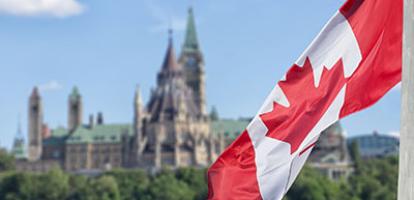In public policy, as in life generally, we often recognize mistakes by others more easily than we recognize mistakes we make ourselves. Italy just goofed big-time with a windfall tax on its banks, and Canadians should take notice.
Last month, the coalition government of Italian Prime Minister Giorgia Meloni announced a surtax of 40 per cent on the profits of the country’s banks. The announcement triggered a crash in bank stocks – a loss of €10-billion in a single day – and a storm of criticism from investors, economists and elected representatives, including members of the coalition.
Ms. Meloni’s government has since backtracked, capping the amount at 1 per cent of bank assets, and exempting smaller banks. But the situation is still unsettled. Italy’s impulsive populist move has shaken the government and further undermined confidence in its management of an already wobbly economy.
Could that happen in Canada? It could – indeed, something like it already did. In 2021, the federal government announced an increase of the corporate tax rate on banks and insurance companies from 15 per cent to 18 per cent, and a five-year, 15-per-cent “Canada Recovery Dividend” tax on their 2021 taxable incomes above $1-billion. That proposal also ran into trouble, and the government walked it part-way back, lowering the surtax rate to 16.5 per cent and changing the income base for the CRD to reduce its impact.
Then, in the 2023 budget, the government followed up with another plan to squeeze banks and insurers: it will no longer recognize that dividends from Canadian shares held by financial institutions are paid from post-tax income, and will tax them again.
Canada’s attempts to raise additional tax dollars from financial institutions have already hurt savers, workers and customers. The federal government should undo that damage – and reduce the likelihood of future damage – by walking back these punitive measures completely.
It is easy to understand the popular appeal of these kinds of tax changes, whether in Italy, Canada or elsewhere. Many people think of taxes on businesses as free money for governments – taxes that no real person has to pay. Populists think of tax policy as a tool to help their friends and hurt their enemies. With rock-bottom interest rates and big-spending governments during the pandemic, the resulting temporary boost to bank profits stood out in a bad way when so many people and businesses were struggling.
But those impulses fall short of making a case for special taxes on financial institutions, or any other business. Some taxes on business make sense – government services cost money, many government services help businesses to operate and taxes on business cut down on opportunities for people to avoid personal taxes by incorporating.
But financial institutions, like all corporations, are legal entities, not real persons, and it is real, flesh-and-blood people who pay their taxes: the people who own shares, directly or through their pension and other accounts; the employees; and the customers. And taxes affect behaviour: Tax something more, whether it is work, investment or innovation, and you’ll typically get less of it.
As the Italian bank-stock crash reminds us, the immediate impact of extra taxes on banks will typically be on current owners of their shares. Over time, savers will move their funds to different sectors – perhaps outside the country. That will affect employees, whose productivity and wages will suffer from lower investment.
Ultimately, the biggest burden falls on consumers. They will suffer directly, through higher fees, premiums, and interest charges, and reduced offerings of financial services. They will also suffer indirectly, since all businesses use financial services, meaning those same higher costs and reduced offerings will raise prices and reduce the goods and services available throughout the economy.
Italy’s high-profile thrust and retreat, and Canada’s more muted version, also raise a more general concern. Impulsive initiatives by governments, followed by chopping and changing on the fly, raise flags for everyone. Why work, or save and invest, in such an erratic environment when there are safer alternatives? Owners, employees and customers of other businesses will legitimately wonder: “Are we next?” If populism rather than fairness and economic logic drive tax policy, who can feel truly safe?
The lesson from Italy’s antics applies everywhere, including in Canada. Governments should resist populist calls for discriminatory taxes on financial institutions, or any other sector. They need to lead responsibly. They should emphasize that people – whether as savers, workers or customers – pay all the taxes that governments collect. They should argue the merits of equal treatment across sectors. They should think policies through ahead of time, not damage confidence with impulsive announcements followed by improvised walk-backs.
Italy has made a more dramatic mistake than ours, but the motivation was similar. We can and should be smarter than that.
Jeremy Kronick is associate vice-president and director of the Centre on Financial and Monetary Policy at the C.D. Howe Institute. William Robson is the chief executive officer of the C.D. Howe Institute.
Published in The Globe and Mail





